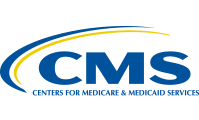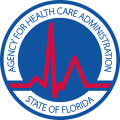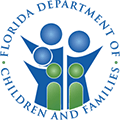What is Painkiller Abuse
Understanding Prescription Painkiller Abuse
When the pain following a surgery, due to an injury, or caused by a medical condition becomes far too much to bear and prevents healthy functioning, prescription painkillers are an invaluable option that has positively affected the lives of numerous individuals. However, because of the highly potent and addictive nature of medications like oxycodone, fentanyl, hydrocodone, Opana, OxyContin, and Vicodin, to name a few, for as much good as these medication have done, they are also the source of powerful addictions for many people.
When taken in a manner that’s outside of a doctor’s recommended guidelines, prescription painkillers can lead to the develop of tolerance and physical dependence, which can make stopping this sort of substance abuse challenging to do on one’s own. The reason for this is because a person’s body adjusts to functioning with these sort of drugs, and because the intense and intoxicating high that they produce can be enticing to the people who abuse them. And while it can seem like this sort of addiction can’t be stopped, it’s important to realize that effective rehab services can mitigate this problem in a life-changing way.
If you are someone who is struggling with an addiction to painkillers, you must know that you don’t have to remain trapped in this vicious cycle of substance abuse. With the help of professionals within a qualified treatment center, you can get through withdrawal safely, heal from the effects of your substance use, and hone the skills that will allow you to enjoy a sober and healthy existence once more.
Statistics
Statistics of Prescription Painkiller Abuse
Prescription painkiller abuse is an ever-present problem in today’s world. According to the National Institute on Drug Abuse, or NIDA, it’s estimated that more than 50 million people in the United States struggle with this sort of substance abuse problem. Furthermore, and according the CDC, or Centers for Disease Control and Prevention, 40 people succumb to the effects of painkiller abuse each day. In the last few years, it has also been reported by the CDC that over 16,000 individuals experienced an overdose due to the misuse of painkillers. And, sadly this rate is widely believed to be climbing. Given these alarming rates, and the fact that prescription painkiller abuse doesn’t seem to be slowing down just yet, it’s clear that more needs to be done to eradicate this public concern.
Causes of Painkiller Abuse
What are the Causes of Prescription Painkiller Abuse
It can be troubling to understand why and how you’ve come to grapple with an addiction to painkillers. Additionally, you may know what triggered this sort of substance abuse in the first place, but are puzzled as to why this problem remains a factor in your life.
As a means of trying to help individuals like you understand the causes and potential risk factors for prescription painkiller abuse, researchers have come to the following evidence-based conclusions that may be able to give you clarity on this sort of concern:
Genetic: Having a family history of addiction and/or chemical dependency can raise your chances of struggling with similar issues. The reason for this, according to experts, is due to specific genes that increase the likelihood of addiction when drugs like painkillers are abused.
Environmental: Not only can your genetics influence whether or not you may battle an addiction to prescription painkillers, but your environment can be just as impactful as well. Aside from requiring a prescription for these sort of drugs and thusly having access to them, if you associate yourself with others who are both accepting of drug use and who also abuse painkillers, your risk for this kind of substance abuse elevates. Furthermore, if you have a hard time successfully coping with emotional turmoil, such as when experiencing stress, disappointment, or sadness, you may turn to the abuse of painkillers if you lack strategies for overcoming negative feelings and emotions. Lastly, if you have subpar social support and feel as though you can’t rely on others to help you through darker times, you may misuse painkillers as a means of numbing your psychological pain.
Risk Factors:
- Prior history of trauma
- Experiencing severe acute or chronic pain
- Prior substance abuse
- Personal history of mental illness
- Family history of substance abuse and addiction
- Ease of access to prescription pain medications
- Lacking healthy coping skills
- Family history of mental illness
Signs and Symptoms of Painkiller Abuse
Learn More About the Signs and Symptoms of Prescription Painkiller Abuse
Since the abuse of prescription painkillers can lead to the development of an addiction before one even knows it, it may be difficult to ascertain if one has developed a true addiction to these drugs. Therefore, if you’re wondering if you’ve developed an addiction to painkillers, it could be helpful to note the presence of any of the following symptoms:
Behavioral symptoms:
- Diminished participation in once enjoyed activities
- Slurring speech
- Deception regarding whereabouts and/or activities
- Using painkillers when its clearly dangerous to do so
- Stealing medication that has been prescribed to someone else
- Continuing to abuse painkillers despite the consequences of doing so
- Trying but being unable to stop the abuse of painkillers
- Spending a great deal of time getting, using, and recovering from painkiller abuse
- Social withdrawal and isolation
- Visiting multiple doctors to get prescriptions for painkillers
Physical symptoms:
- Impaired coordination
- Heavy perspiration
- Disrupted sleep patterns
- Constipation
- Itchiness
- Decreased blood pressure
- Pupil dilation
Cognitive symptoms:
- Disorientation
- Poor decision-making skills
- Confusion
Psychosocial symptoms:
- Drastic changes in mood
- Irritability
- Depression
Effects of Painkiller Abuse
Understanding the Effects of Prescription Painkiller Abuse
As with the abuse of illicit substances, the abuse of prescription painkillers can begin to impact other areas of life the longer this sort of chemical dependency problems remains unabated. However, when you start an addiction program to defeat this sort of issue, you can avoid the following and live the healthy, sober lifestyle that you deserve:
- Family discord
- Social isolation
- Legal problems
- Homelessness
- Job loss
- Chronic unemployment
- Suicide attempts
- Development of physical health problems
- Suicidal ideation
- Damaged interpersonal relationships
- Onset of mental health concerns
- Financial distress
Effects of Withdrawal and Overdose
Learn More About the Effects of Withdrawal and Overdose
Effects of prescription painkiller withdrawal: The longer you abuse prescription painkillers, the more likely it is that your body will become accustomed to the presence of these substances. For this reason, your body will need to adapt to functioning without painkillers if you should stop abusing these drugs, which can then cause the following withdrawal symptoms to emerge:
- Dysphoria
- Diarrhea
- Powerful cravings for painkillers
- Irritability
- Agitation
- Heavy perspiration
- Watery eyes
- Nausea
- Runny nose
- Pain in bones
- Muscle pain
- Tremors and twitches
- Inability to sleep
- Vomiting
- Fever
- Loss of appetite
Effects of prescription painkiller overdose: While the misuse of prescription painkillers can cause a vast array of negative effects, an overdose is perhaps the most life-threatening consequence of this kind of substance abuse. When the following effects begin happening to you after you’ve ingested more painkillers than your body can handle, it is necessary to get medical help as quickly as you can:
- Seizure
- Breathing problems
- Loss of consciousness
- Pinpoint pupils
- Extreme disorientation
- Slow pulse
Co-Occurring Disorders
Treatment for Co-Occurring Disorders
It’s a common occurrence that those who struggle with the abuse of prescription painkillers often battle mental health disorders at the same time. If this is the case for you, it could be especially difficult for you to end your misuse of painkillers without accessing professional rehab services that are equipped to care for the following co-occurring mental health disorders as well:
- Persistent depressive disorder
- Other substance use disorders
- Posttraumatic stress disorder (PTSD)
- Major depressive disorder











